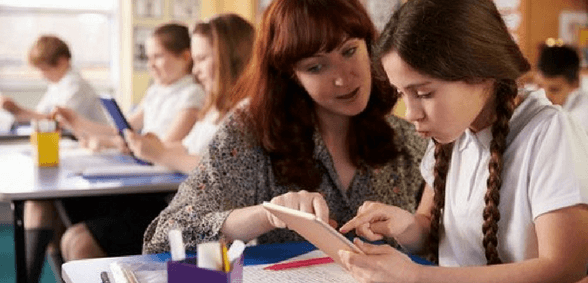
New research shows that there is little correlation between pupil happiness and their grade performance
A new report from the Centre for Education Economics (CfEE) which is being published today has discovered the belief that pupil enjoyment leads to achievement is, widely, a myth.
It argues that there is, in fact, little evidence to suggest that interventions and strategies which have positive effects on achievement also raise pupil happiness and a joy for learning.
The report investigates a wide range of evidence around the relationship between pupil happiness and achievement. It found that on average, traditional, teacher-centred methods are more effective from a learning perspective than the progressive ‘child-centred’ teaching methods widely advocated in modern schooling.
It goes on to argue that, while student wellbeing is still important, this trade-off between happiness and achievement is something policymakers need to take seriously when it comes to setting policy, rather than relying so heavily on flawed educational theory.
The report’s author, Gabriel Heller-Sahlgren, said: “The idea that positive emotions and achievement go hand in hand has become deeply entrenched within the education system. These progressive ideals regarding pupil enjoyment are an important reason why modern educationalists historically have supported pupil-centred teaching methods.
“Indeed, it is still commonly believed that it is necessary to make learning ‘invigorating’ for learning to take place at all.
“Yet, our research has found that there is little rigorous evidence in favour of this assumption, which stems from a misinterpretation of Jean-Jacques Rousseau’s agenda-setting book Émile, or On Education. There is much to suggest that progressives, then as now, misunderstood fundamental aspects of Rousseau’s theory – especially his views on pupil happiness.
“In fact, Rousseau’s most fundamental insight was that effective learning is often not enjoyable.
“Our report highlights the existence of a trade-off between pupil happiness and achievement in education. The answer is clear: there is little evidence that interventions and strategies that have positive effects on achievement also raise pupil happiness and a joy for learning.”
The research scrutinised a wide range of evidence. Researchers found that direct instruction, drill and memorisation are crucial aspects of traditional education – and are neither inherently fun nor inspiring – yet they are necessary components for successful learning.
CfEE argues that, while the report does not mean that policymakers should ignore pupil wellbeing, it does cast serious doubt on an important tenet of modern educational theory.
Heller-Sahlgren added: “The idea of pupil-centred learning has perhaps unsurprisingly also taken hold in the policy debate. Indeed, in the past decades, education policy in most western countries has become increasingly pupil-centred as governments have sought ways to improve achievement.
“However policymakers should start taking the concept of trade-offs seriously in education. Policymakers and stakeholders must carefully assess the extent to which their proposed policies involve trade-offs between learning and enjoyment – and, if so, which goals to promote and which ones to discard.”
Don’t forget to follow us on Twitter, like us on Facebook, or connect with us on LinkedIn!

Be the first to comment